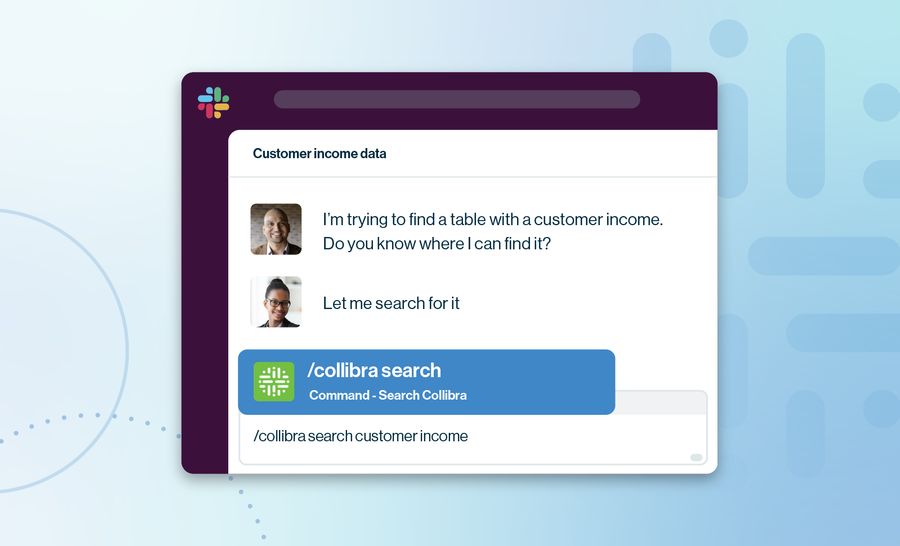The journey to data catalog and governance success: A customer perspective

Data governance is the foundation of data intelligence. Organizations need a clear data governance strategy in order to truly be data-driven. We sat down with our customers Froedtert and the Medical College of Wisconsin to learn more about their data governance journey.
About Froedtert and the Medical College of Wisconsin
Froedtert and the Medical College of Wisconsin, recipients of the Press Ganey Guardian of Excellence Award and the Vizient award, are two organizations partnering and working as one clinical enterprise.
The clinical enterprise boasts nine hospital locations, over 45 health centers and clinics, works with over 2000 physicians and 12000 employees, and attends to over 40 specialties and numerous medical services.
Froedtert and the Medical College of Wisconsin wanted their clinical enterprise to take charge of their data metrics and data ownership. The complexity of the organization necessitated a data catalog and governance solution. Without it, the enterprise would be unable to conduct data-driven decision-making — keeping them from evolving into a data-driven organization.
Top problems: why data catalog and governance?
According to Fahad Bijle, director of enterprise analytics and data strategy for Froedtert and the Medical College of Wisconsin, the clinical enterprise faced several challenges:
- Lack of a formal data governance strategy that would provide the organization with direction on collecting data, protecting data, and monitoring data metrics. The executives recognized the importance of data, but the organization didn’t fully acknowledge the necessity of data governance.
- Presence of two different organizational platforms which affected team alignment, collaboration between stakeholders, decision-making, and administration.
- There was no recognized data governance tool as the organization tried to bootstrap data sharing with data points and Excel. This affected the ease of access to needed information for organization members.
- There was no dedicated data governance team to oversee data documentation, organization, and evaluation. Rather, it became a secondary responsibility for other teams.
- Data ownership was placed solely on the IT team, and they were expected to direct other teams like the business team, leadership team, and operational team on how data should be used.
Identifying these fundamental problems pushed the clinical enterprise to develop a data governance strategy launched in 2017 and relaunched in 2018.
Collibra and data governance – the outcomes
Jonda Joseph, Data Governance Manager for Froedtert and the Medical College of Wisconsin, breaks the implementation timeline of data governance into the following:
After a failed attempt at data governance in 2017, the clinical enterprise restarted its data governance journey in 2018, leveraging executive buy-in to launch the Data Citizenship and Governance Consortium in partnership with operational and clinical leaders.
The goal was to make the group change ambassadors who would promote the program throughout the organization at an enterprise level.
The following year, 2019, Froedtert and the Medical College of Wisconsin adopted Collibra, known in the organization as Data 360. It took 15 months to complete the launch. The clinical enterprise organized 15 roadshows to spread awareness and trained 100 people on the platform.
Between 2020 and 2021, the company focused on building its data catalog. The clinical enterprise worked virtually with communities and embedded data governance in its product development cycle. The developed assets were stored in the data analytics platform and Data 360 (Collibra).
The outcome
Currently, the enterprise is focused on its communities. The Data Governance Core Team (DGCT) developed customized engagement models to assess engagement levels and provide solutions for operationalizing data governance and adoption.
The Data 360 platform is currently undergoing enhancement to refine metadata retrieval from data sources and Power BI reports. The DGCT team also improved user experience and increased usability by introducing a new user dashboard for Data 360.
Following the adoption of the data intelligence path and implementation of data governance, Froedtert and the Medical College of Wisconsin experienced the following outcomes:
- Established a single cloud-based platform against two separate organizational platforms for seamless data collection and synchronization, ease of access to data, and easy data governance.
- Implemented Collibra (branded internally as Data 360).
- Empowered clinical and operational leaders to take charge of metrics.
- Implemented an operational framework that also emphasized the importance of data governance.
- Prioritized data governance in the company’s annual strategic plans.
- Created a dedicated data governance team, the DGCT, with the primary responsibility to facilitate and support data governance across the enterprise. A dedicated team understands business processes and how collected data plays a role in those processes.
- Enable partnerships between clinical enterprise partners by adopting the Hub & Spoke model and community structure.
While it took some time to get executives on their side, develop a strategy, and implement it, the outcomes demonstrate the value of investing in a data catalog and governance strategy.
In this post:
Related articles

Data GovernanceFebruary 14, 2025
Why we are the data and AI leader for you

Data GovernanceJuly 28, 2025
Your new shortcut to trusted data: Collibra’s two-way Slack Integration

Data GovernanceOctober 12, 2023
Improved user provisioning leads to calmer seas and smoother sailing

Data GovernanceSeptember 6, 2024
TELUS’s metadata maximization: Driving automation to empower and connect
Keep up with the latest from Collibra
I would like to get updates about the latest Collibra content, events and more.
Thanks for signing up
You'll begin receiving educational materials and invitations to network with our community soon.
